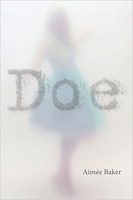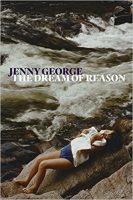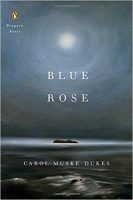April 19, 2018
Edited by David Sanders
Specimen Days
1608—Earl of Dorset, poet/statesman, dies.
1627—John Beaumont, English poet (b. 1583), dies.
1824—Lord Byron [George Gordon Byron], British romantic poet (Childe Harold's Pilgrimage), dies at 36.
1852—Vasili A Zjukovski, Russian folk poet/translator (Homerus), dies at 69.
1891—Ricardo Bacchelli, Italian writer/poet (La Ronda), is born.
1893—John Addington Symonds, British critic and poet, dies at 52.
1938—Henry John Newbolt, poet/author (Studies Green & Gray), dies at 75.
1977—Günter Bruno Fuchs, German writer, poet and artist, dies at 48.

Quaff while thou canst—another race,
When thou and thine like me are sped,
May rescue thee from earth’s embrace,
And rhyme and revel with the dead.
Why not? since through life’s little day
Our heads such sad effects produce;
Redeem’d from worms and wasting clay,
This chance is theirs, to be of use.
—from “Lines Inscribed Upon a Cup Formed from a Skull”
by George Gordon Lord Byron
“Why not? since through life’s little day / Our heads such sad effects produce; / Redeem’d from worms and wasting clay,” – George Gordon Lord Byron
World Poetry
Somaliland Poet Jailed for Somalia Reunification Poetry

Poet Nacima Qorane was found guilty of bringing the state into contempt for backing Somaliland's reunification with Somalia. A court in the self-declared republic of Somaliland has sentenced a young poet to three years in jail. Nacima Qorane was found guilty of bringing the state into contempt by advocating for Somaliland to reunite with Somalia. Pressure groups in Somaliland said Ms Qorane's basic human rights have been violated. Somaliland self-declared independence in 1991, but is not recognised internationally. Ms Qorane was arrested in January after returning from the Somali capital Mogadishu, where prosecutors said she had recited poetry calling for Somali unity.
Samuel Taylor Coleridge's Remains Rediscovered in Wine Cellar

It probably wouldn’t have surprised his long-suffering friends, but the remains of the poet Samuel Taylor Coleridge have been rediscovered in a wine cellar. Literary pilgrims have long paid their respects at the memorial plaques to Coleridge in the church above, unaware his lead coffin was lying behind a brick wall closing one end of the 17th-century cellar. The space was incorporated into the crypt of St Michael’s when the church was built in 1831 near the top of Highgate Hill in north London.
Somali-British Poet Momtaza Mehri Named Young People's Laureate for London

The 24-year-old Somali-British poet Momtaza Mehri, who has been chosen as the new young people’s laureate for London, is hoping to spend her year in the role convincing young people “to see poetry as part of their every day, rather than in some dusty tome, or academic niche interest”.
The 24-year-old Somali-British poet Momtaza Mehri has been chosen as the new young people’s laureate for London.
Recent Reviews
A Brand New Beginning: “Austerity Measures: The New Greek Poetry”
by Christopher Janigian
When so much is scarce, there are only, as Karen Van Dyck writes in her introduction to Austerity Measures: The New Greek Poetry, “new ways to imagine what can be radically different realities.” This anthology gathers an eruption of voices emerging from Greece in the last decade — where, amid 2008’s economic crisis, hunger and mass unemployment have been widespread, businesses have collapsed, and an outpouring of refugees from Syria, Afghanistan, Turkey, and Iraq has entered the country. Somehow, among all of this, a renaissance in poetry has ignited. The scope is unprecedented: new publishing houses and journals, free public readings, wide digital proliferation, graffiti. The poems in Austerity Measures are urgent, and as varied as the lived experiences of their writers — all of them writing from a certain turmoil.
Papa Césaire’s Long Shadow: On “The Complete Poetry of Aimé Césaire”
By André Naffis-Sahely
Once poets have an established legacy — this sadly outdated concept having now been confused with celebrity — it becomes increasingly likely that their poetry will be judged solely according to that legacy. As such, only a decade after his death, Aimé Césaire (1913–2008) is still largely read — when he is read at all — as the gray, bespectacled founder of négritude: a hieroglyphic, unfamiliar monument one is compelled to pay homage to at some point or another, but one which nevertheless leaves most onlookers in the English-speaking world both perplexed and uncertain. The Complete Poetry of Aimé Césaire,recently published by Wesleyan University Press, thus takes on a fairly formidable task: it promises to leave us in no doubt as to Césaire’s central importance to 20th-century poetry, as well as to showcase all of his lyric work in a cripplingly weighty bilingual edition, which is based on the definitive, 1,800-page edition of all of Césaire’s texts, published in France in 2013 to mark the centenary of the poet’s birth.
Second Acts: A Second Look at Second Books of Poetry: Gabriel Fried and Tomás Q. Morín
by Lisa Russ Spaar
In honor of the many very fine second books that appeared in 2017, this edition of “Second Acts,” which typically pairs a second book published over 20 years ago with a recently published volume, will present brief reviews of two provocatively paired sophomore efforts, Gabriel Fried’s The Children Are Readingand Tomás Q. Morín’s Patient Zero.
Scorching, Sophisticated New Work From Two of America’s Leading Poets
by Dwight Garner
When Robert Frost was poet laureate in the late 1950s, he saw himself as a political as well as a literary eminence. He expected his advice to be sought on pressing matters of state. He later flew to Russia to talk to Khrushchev about the crisis in Berlin. Walls were, as they are now, in the news. We know, of course, how Frost felt about them. He wrote, “Something there is that doesn’t love a wall / That wants it down.” The flagrant unlikelihood of anyone in today’s White House ingesting a book of poems, much less consulting Tracy K. Smith, our current laureate, on any matter, is apparent.
When Robert Frost was poet laureate in the late 1950s, he saw himself as a political as well as a literary eminence.
Broadsides
Montreal Poetry After Leonard Cohen
by Derek Webster

For at least a century, Montreal has been seen as an “open city,” in which one can drink freely and experiment socially. Montreal, the Paris of North America, closer and cheaper than the real thing, a place where immigrants can restart their lives, black sheep can become artists, and tourists can enjoy burlesque dreams unavailable or too risky back home. It’s not the vision the religious founders of Ville Marie set out to build in 1642—instead of Mary’s Town, they got MerryTown. But in a continental sea of Protestant teetotalers and late-Victorian moralists, it’s a role Montreal has come to play. Yet the original vision lives on in surprising forms, with unfortunate consequences for anglophones who wish to make a life here. This is the city where Leonard Cohen was born and raised.
J. D. McClatchy’s Poetry Lessons
by Alexandra Schwartz
For a semester in college I tried out being a poet. I had not written many poems before, and have hardly written one since, but I sent in an application to the English department and found myself, one January afternoon, in J. D. (Sandy) McClatchy’s Intermediate Poetry workshop. The room was thick with that mix of apprehension, confidence, and eagerness for approval that greets the start of a semester. Sandy stood at the head of the big table and looked down at us, his new acolytes. The look was piercing, wry and owlish. We were the prey. He was sharply dressed; his glasses hung, chicly, from a leather cord outfitted with a silver loop that he wore around his neck. Already I had a feeling of perhaps failing to measure up. “Let me impress one thing upon you all,” he said. “I don’t want to see a single poem about your families and their dysfunctions. I hate your mother, and I really hate your grandmother.”
Montreal, a place where immigrants can restart their lives, black sheep can become artists, and tourists can enjoy burlesque dreams unavailable back home.
Drafts & Fragments
Watch Wonderfully Animated French Poem of Animals Encouraging Snails to Celebrate Spring
As a means of welcoming the arrival of warm weather, this production team created a delightful animated video rendition of a children’s poem about a forest full of animals celebrating spring. The video, which is called “Two Snails Set Off”, is based on the French poem “Song of the Snails Who Went to Burial” written by Jacques Prévert.
A Homework Assignment from W. H. Auden
By Anthony Madrid

I don’t know the backstory on this one. All I have is the assignment below, forwarded to me by my editor. What is he even talking about. Actually, I can explain that. The part I can’t explain is how Auden can possibly have thought anything good was gonna come out of this assignment. He was a glutton for punishment, I’ve heard. But you’d have to have a screw loose to hand out the above as an assignment. It’s not that the students wouldn’t do it; they’d try. But then you’d have to read the results. Take a sec and imagine the anger.
A Homework Assignment from W.H. Auden
Poetry In the News
Wellesley College Professor Wins Pulitzer Prize for Poetry

Frank Bidart, a Wellesley College professor who is one of America’s most respected poets, was lying in bed Mondayafternoon in Cambridge, watching the Pulitzer Prize announcements on his iPad, not expecting much, when he learned he had won. “I thought, well, my book would probably be one of the books they would consider. I had no indication I would be a finalist,” said Bidart. “I absolutely did not think it was going to have this result. It was quite shocking.”
Poet, Librettist, and Longtime Yale Review Editor J.D. McClatchy Dies

J.D. (Sandy) McClatchy ’74 Ph.D., an eminent poet, literary critic, translator, and opera librettist who served as the editor of The Yale Review for more than 25 years, died of cancer at home in New York City on April 10. He was 72. He published eight books of poetry, including “Hazmat” (a 2003 finalist for the Pulitzer Prize), three books of criticism, and 18 edited volumes. He also wrote 16 opera libretti, the most recent of which was an adaptation of Stephen King’s “Dolores Claiborne,” which was commissioned and produced by the San Francisco Opera in 2013.
Student from Zambia Sues to Compete in 'Poetry Out Loud'
A high school student who fled his native country of Zambia last year is suing the National Endowment for the Arts because it will not let him compete in the national "Poetry Out Loud" contest. Allan Monga, a 17-year-old junior at Deering High School, won Maine's contest but he said he's not being allowed to compete nationally because he hasn't yet been granted legal asylum. "I honestly don't want to stir up any trouble. I just want to go to Washington, D.C., and compete like any other kid," Monga, of Westbrook, said Thursday at his attorneys' office.
Frank Bidart, a Wellesley College professor who is one of America’s most respected poets, has been awarded the Pulitzer Prize.
New Books
Doe by Aimée Baker
[Paperback] The University of Akron Press, 80 pp., $15.95

Doe began as author Aimée Baker's attempt to understand and process the news coverage of a single unidentified woman whose body was thrown from a car leaving Phoenix, Arizona. It soon grew into a seven-year-long project with the goal to document, mourn, and witness the stories of missing and unidentified women in the United States.
Rail by Kai Carlson-Wee
[Paperback] BOA Editions Ltd., 104 pp., $16.00
Set against a landscape of rail yards and skate parks, Kai Carlson-Wee’s debut collection captures a spiritual journey of wanderlust, depression, brotherhood, and survival. These poems―a “verse novella” in documentary form―build momentum as they travel across the stark landscapes of the American West: hopping trains through dusty prairie towns, swapping stories with mystics and outlaws, skirting the edges of mountains and ridges, heading ever westward to find meaning in the remnants of a ruined Romantic ideal. Part cowboy poet, part prophet, Carlson-Wee finds beauty in the grit and kinship among strangers along the road.
The Dream of Reason by Jenny George
[Paperback] Copper Canyon Press, 72 pp., $16.00

Jenny George’s debut showcases an astonishing poetic talent, a new voice that is intensely focused, patient, and empathic. The Dream of Reasonexplores the paradoxical relationships between humans and the animals we imagine, keep, fear, and consume. Titled after Goya’s grotesque bestiary, George’s own dreamscape is populated by purring moths, bats that crawl like goblins, and livestock―especially pigs, whose spirit and slaughter inform a central series of portraits. The poems invite moments of stark realism into a spacious, lucid realm just outside of time―finding revelation in stillness, intimacy in violence, and vision in language that lifts from the dark.
Brown: Poems by Kevin Young
[Hardcover] Knopf, 176 pp., $27.00
Divided into "Home Recordings" and "Field Recordings," Brown speaks to the way personal experience is shaped by culture, while culture is forever affected by the personal, recalling a black Kansas boyhood to comment on our times. From "History"–a song of Kansas high-school fixture Mr. W., who gave his students "the Sixties / minus Malcolm X, or Watts, / barely a march on Washington"–to "Money Road," a sobering pilgrimage to the site of Emmett Till's lynching, the poems engage place and the past and their intertwined power. These thirty-two taut poems and poetic sequences, including an oratorio based on Mississippi "barkeep, activist, waiter" Booker Wright that was performed at Carnegie Hall and the vibrant sonnet cycle "De La Soul Is Dead," about the days when hip-hop was growing up ("we were black then, not yet / African American"), remind us that blackness and brownness tell an ongoing story. A testament to Young's own–and our collective–experience, Brown offers beautiful, sustained harmonies from a poet whose wisdom deepens with time.
Blue Rose by Carol Muske-Dukes
[Paperback] Penguin Books, 80 pp., $18.00

Carol Muske-Dukes has won acclaim for poetry that marries sophisticated intelligence, emotional resonance, and lyrical intensity. The poems in her new collection, Blue Rose, navigate around the idea of the unattainable – the elusive nature of poetry, of knowledge, of the fact that we know so little of the lives of others, of the world in which we live. Some poems respond to matters of women, birth, and the struggle for reproductive rights, or to issues like gun control and climate change, while others draw inspiration from the lives of women who persisted outside of convention, in poetry, art, science: the painter Paula Modersohn-Becker, the scientist and X-ray crystallographer Rosalind Franklin, and the Californian poet and writer Ina Coolbrith, the first poet laureate ever appointed in America.
Jenny George’s debut showcases an astonishing poetic talent, a new voice that is intensely focused, patient, and empathic.
Correspondences
Circuit and Leap: In Conversation with Mary Jo Salter
by Susan Gillis
Passionate intensity, quiet unfolding, excited language — whatever the formal elements, it's a poem's particular energy that stays with me. Fragments of my earliest reading materialize in memory's ear, kinetically intact, sometimes even intensified. This kind of memorable energy courses through Mary Jo Salter's chain of sonnets "The Surveyors.” As fall gave way to winter, and winter to more winter, Mary Jo and I exchanged emails about her writing and her life, the multiplicity of endings in poems, time-jumbling, the sonnet as ramble, and poetry's particular remembering.
National Poetry Month: A Q&A with ‘I Know Your Kind’ Author William Brewer
by Meryl Natchez
It’s rare that any book of poems, not to mention a first book, is as powerful as I Know Your Kind (96 pages; Milkweed) by William Brewer. This book, rooted in the physical and spiritual landscape of West Virginia, tackles the opioid epidemic in verse. Focusing on the small town of Oceana (nicknamed Oxyana for the record number of overdoses there), Oceana acts as a stand-in for West Virginia as a whole, which has the highest OD rate in the country. The book is at once dreamlike and visceral, and the images in it draw on the beauty and pain of a West Virginia that is, in Brewer’s words “last on every list,” a state that people in the nation’s capital, only a few hours away, barely acknowledge and clearly don’t care much about.
Former U.S. Poet Laureate Juan Felipe Herrera Wants Poetry to Be Joyous
by Steve Saldivar

Juan Felipe Herrera can't stand still. He finished his last chapter as U.S. poet laureate last year, but the 69-year-old is as busy as ever. He wrapped up a poetry reading of his new book "Jabberwalking" in Washington, D.C., before jetting to Dallas for a librarians' conference. He'll be in San Jose holding a workshop on visual poetry before coming to Los Angeles for the Festival of Books. There's not a time zone he won't cross for poetry.
A Vicarious Encounter with Gregory Pardlo
by Nick Ripatrazone
Digest, Gregory Pardlo’s 2015 Pulitzer Prize winning collection of poems, begins with “Written by Himself”: “I was born still and superstitious; I bore an unexpected burden. / I gave birth, I gave blessing, I gave rise to suspicion.” His lines carry a mythic rhythm that originate with the self, and then extend out, as in “Problemata,” when neighborhood fireworks flare emotions: “My neighbor’s teenaged boys argue who possesses the greatest / patriotism. Just as pit bulls chained to their fists imply / their roughly domesticated manhood, / they seek to demonstrate their patriotism with bottle / rockets, spinners, petards, these household paraphernalia of war.”
Juan Felipe Herrera can’t stand still. He finished his last chapter as U.S. poet laureate last year, but the 69-year-old is as busy as ever.
Envoi: Editor’s Notes
Romantic Notions
This, the anniversary week of Byron's death coincides (at least for the purposes of this edition of the newsletter) with the recent news of the discovery of Coleridge's burial site. As if the Romantics were always so neatly in step. Here is a passage from Byron's correspondence to Francis Hobson, December 8, 1811:
"Coleridge has attacked the "Pleasures of Hope," and all other pleasures whatsoever. Mr. Rogers was present, and heard himself indirectly rowed by the lecturer. We are going in a party to hear the new Art of Poetry by this reformed schismatic; and were I one of these poetical luminaries, or of sufficient consequence to be noticed by the man of lectures, I should not hear him without an answer."
This, the anniversary week of Byron’s death coincides with the recent news of the discovery of Coleridge’s burial site.